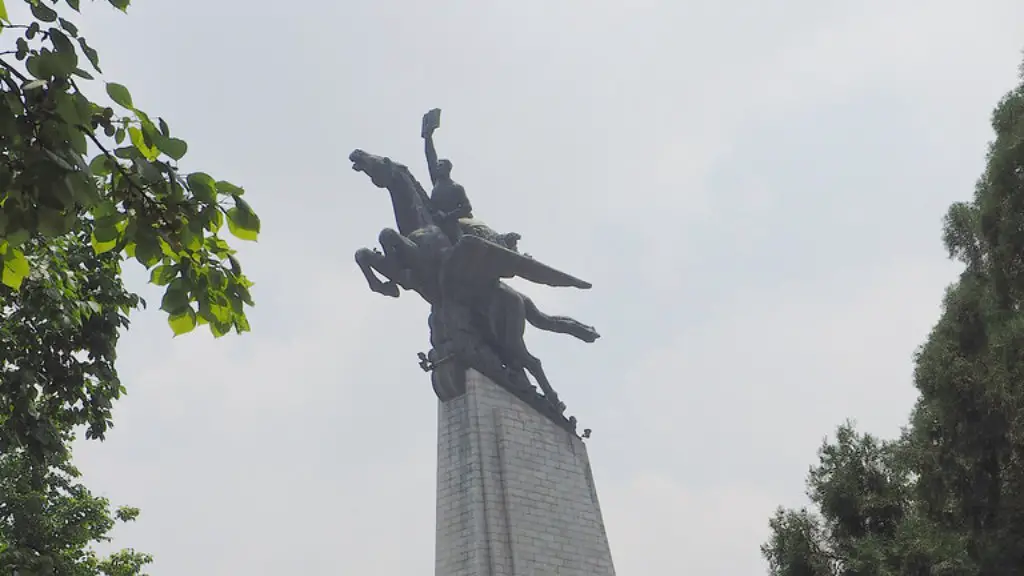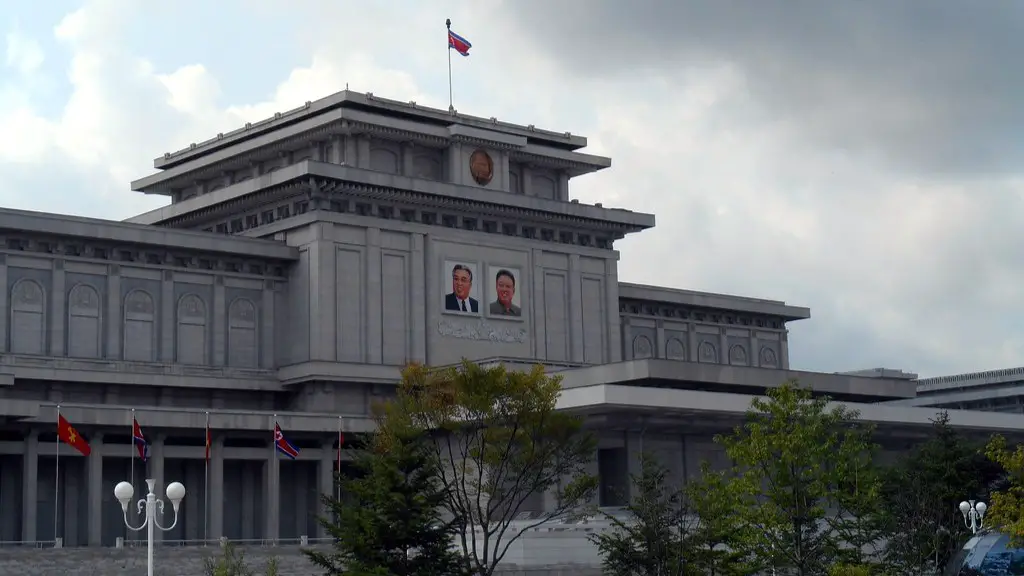Background Information
North Korea is among the few countries that have succeeded in creating a so-called ‘hermit kingdom’ – a fully isolated, autocratic state. For many years, the country has been known for its reclusive nature and oppressing rule, and any data about the respective economy and its internal workings is, for the most part, obscure and unavailable. In general, the North Korean economy is very poorly developed and operates in a limited and isolated capacity.
Revenue Sources
The government of North Korea relies heavily on foreign aid and scarce remittances from North Korean folk based abroad. However, North Korea also has several key industries and big businesses that it uses to generate its income, most notably from exporting resources such as minerals and rare earths to China. Some of the country’s biggest economic organizations are responsible for handling such trades.
The other major part of North Korea’s economy is the increasing public sector. The public sector includes various services such as state-run hospitals and public schools, as well as military spending, though the exact figures remain largely unknown. Public policies in North Korea have traditionally sought to make the population increasingly dependent on the regime, reducing the population’s ability to self-sustain.
International Sanctions
International sanctions imposed on North Korea have limited its ability to generate income. The US and UN Security Council have been known to impose limited sanctions on North Korea due to the country’s nuclear activities deemed by some to be a threat to global peace and stability.
These sanctions severely limit North Korea’s ability to generate revenue from foreign sources, for instance by banning the purchase of North Korean exports as well as restricting various forms of financial transactions to the country. Despite this, there are reports of some large-scale black markets specializing in the illegal importation of North Korean exports.
Explore Illegal Activities
The North Korean regime has also resorted to various forms of illegal activity in order to generate funds. Over the years, the US Treasury Department has alleged that North Korean nationals have been involved in money laundering, drug trafficking, counterfeiting foreign currencies, and cybercrime. Such activities represent a significant source of income for the country, but come with serious penalties for those who are caught.
This despite the lack of accountability by North Korea for its actions, including highly publicized cases involving the policing of its own citizens for dissent, and for alleged violations of human rights.
Reliance on External Support
Perhaps the most significant form of revenue for North Korea comes in the form of aid and support from foreign countries, primarily the Chinese government. China is known to be one of the largest suppliers of economic and aid support to North Korea, and is believed to account for around 80-90% of the outside aid that the country receives.
China is currently viewed as North Korea’s primary source of support, and even though the Chinese economic aid has decreased over the years, it is still very important in allowing North Korea to maintain its independence and to function within the global economy.
Underground Markets
Underground markets in North Korea represent another form of income for the country. These markets are typically found in rural areas, and typically involve the trading of a variety of items – from cigarettes and food to electronics and luxury goods. Such activity is technically illegal, but is known to occur on a large scale and is believed to be the lifeblood of North Korea’s local economies.
The underground market is a significant source of income for the North Korean economy, and has helped to keep the country afloat during times of economic hardship. The government is known to tax the traders, making it yet another form of revenue for the country.
Cyber-Crime
North Korea is believed to be one of the fastest-growing countries in terms of cyber-crime, with reported attacks having been linked to the country’s military and intelligence services. Such activities have become increasingly prevalent in recent years, and the country is known to be proficient in cyber-espionage, data theft and hacking.
In addition, North Korea also has its own state-sponsored hacking program known as ‘Bureau 121’, which is believed to be primarily used to target foreign governments and financial institutions. This has allowed North Korea to generate substantial income through the theft of other countries’ funds and data assets.
Military Activity
North Korea has long utilized its military to bolster its economy. The country has relied on foreign aid for a large portion of its income, but has used its military to generate additional income through various means. From exports of weapons and military-related technology, to deals with foreign governments for provisioning military services, North Korea’s military has long been an important source of income for the country.
In addition, North Korea’s military also plays an important role in protecting the regime from foreign threats, and can be deployed to suppress any sign of dissent by the country’s citizens. Such activities are not only essential to the continued success of the regime, they also represent a lucrative source of funds for the government.
Tourism
Tourism has also become an increasingly important source of income for North Korea. The country is known to be a popular tourist destination, with tours arranged with the help of foreign countries, allowing visitors to explore the country’s sites and learn more about its culture and history.
The tourism industry has grown to become one of the largest sources of revenue for North Korea, though it is believed that the vast majority of the profits remain within the government’s control, effectively preventing any of the wealth from reaching the citizens of the country.
Counterfeiting
North Korea has also long been known for its counterfeiting activities. Reports of North Korea counterfeiting and swapping US dollars, Euros, and Chinese Renminbi have been a major concern for world governments and financial institutions for decades. The North Korean government is known to be extremely active in this field, and has been able to generate considerable profits through the production and circulation of counterfeit currency.
Though the government had sought to reduce the production of such items, there is still evidence of a considerable counterfeiting industry in existence, and it is clear that this is still a profitable source of income for North Korea.
Criminal Financing
It is believed that a large portion of North Korea’s income comes from criminal activities. North Korean nationals have been known to traffic drugs, engage in money laundering and cyber-attacks, and for other crimes. Such activities generate considerable income for the government, though the exact figures remain a mystery.
In addition, North Korea is known to have ties to terrorist organizations and rogue states, many of whom provide the country with weapons and resources in exchange for logistical support. Such activities increase the country’s financial resources, allowing it to sustain its oppressive regime and maintain control over its citizens.


